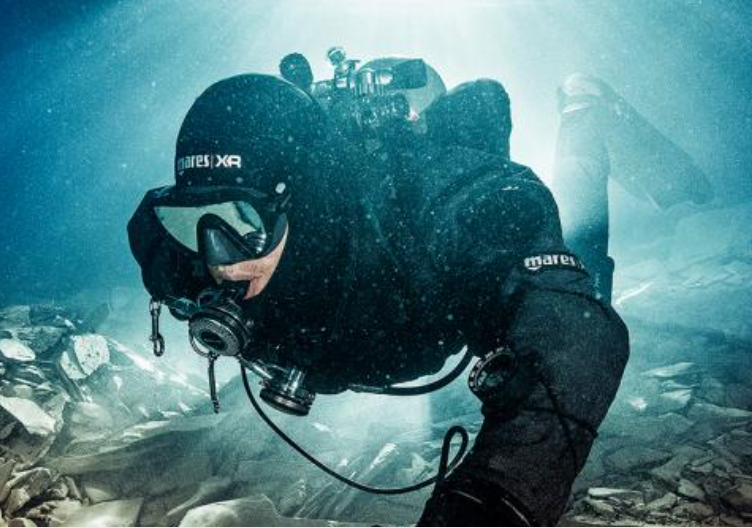
How to Prepare for Your First Extended Range Dive
by Robert Diaz on Jul 10, 2023Are you ready to take your diving to the next level?
Extended-range diving can be an exciting and rewarding way to explore the underwater world. However, it also requires specialised training, equipment, and preparation. If you’re getting ready for your first extended-range dive, there are several key things you should keep in mind to ensure a safe and enjoyable experience.
Extended Range diving is not for beginners. It’s essential to have a solid foundation in recreational diving and gain experience in a variety of diving environments before embarking on technical dives. Extended-range diving requires advanced skills, knowledge, and discipline, and the consequences of making a mistake can be severe.
Assuming you have already met the prerequisites and obtained the required training and certifications, here’s how to prepare for your first extended range dive:
Choose the Right Equipment
Extended range diving requires specialized equipment designed to handle the increased pressure and demands of deep diving. Before embarking on an extended range dive, it’s essential to ensure that all of your equipment is in excellent condition and functioning correctly. Make sure you have all the necessary equipment, including dive computers, multiple regulators, tanks, and backup lights. It’s also critical to have a dive plan and a backup plan in case something goes wrong.
Get Familiar with the Dive Site
Extended range dives can take you to depths that recreational divers don’t typically visit, and it’s essential to get familiar with the dive site. Research the site ahead of time and understand the potential hazards, such as currents, visibility, and underwater obstacles. It’s also a good idea to do a shallow dive at the site to get a feel for the conditions and any potential challenges.
Plan Your Dive
Extended range diving requires careful planning and preparation to ensure a safe and successful dive. Before the dive, create a detailed dive plan, including depth, duration, gas mixtures, and decompression stops. It’s also essential to have a contingency plan in case of an emergency. Review your dive plan with your dive team and ensure that everyone is on the same page.
Practice Good Gas Management
Proper gas management is crucial in extended range diving. Make sure you have a thorough understanding of the properties of each gas mixture and how it affects your body at different depths. Calculate the amount of gas you will need for the dive, taking into account the depth, the duration of the dive, and the safety margins required. Monitor your gas consumption and plan your dive accordingly to ensure you have enough gas to complete your decompression stops and safely return to the surface.
Prepare Mentally and Physically
Extended range diving can be physically and mentally demanding, and it’s essential to prepare yourself accordingly. Make sure you’re well-rested, hydrated, and physically fit before the dive. Mental preparation is also critical. Visualize the dive, practice deep breathing and relaxation techniques, and focus on staying calm and focused during the dive.
Dive with a Qualified Buddy
Extended range diving should never be done alone. Always dive with a qualified buddy who has similar experience and training. Before the dive, review your dive plan with your buddy, establish communication signals, and ensure that you both understand each other’s roles and responsibilities.
Stay Alert and Focused
Extended range diving requires constant vigilance and attention to detail. Stay alert and focused during the dive, and be prepared to adapt to changing conditions. Monitor your gas consumption, dive depth, and decompression stops. Stay within the limits of your training and experience, and never take unnecessary risks.
In conclusion, preparing for your first extended range dive requires careful planning, preparation, and discipline. Make sure you have the right equipment, get familiar with the dive site, plan your dive, practice good gas management, prepare mentally and physically, dive with a qualified partner, and stay alert and focused.
